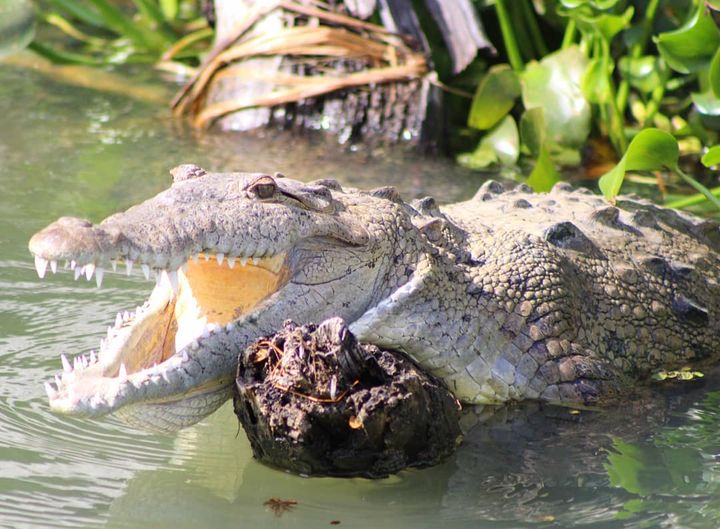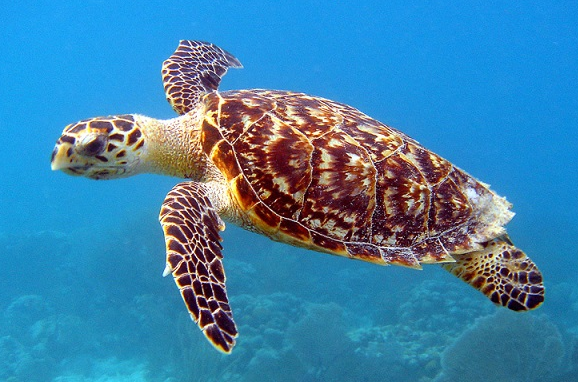Subscribe for all my updates and don't miss a thing! Sign me up!
The Black River Safari Tour
Wildlife Adventure In Black River, St. Elizabeth
Sharing Is Caring! Share this awesome content with your friends now.
by Sheree-Anita Shearer | Associate Writer
This trip to the Black River Safari Tour was an experience, to say the least! It is not for the faint of heart and it even took me a while to warm up to the trip. But after getting over the fact that you are indeed on a boat with crocodiles just a few feet away from you, you can actually take in and enjoy the trip and the beautiful scenery the trip up the river provides.
New! Take a piece of Jamaica with you💃!
Savour the memories! Now you can get your authentic Jamaican souvenir items, as well as traditional Jamaican herbs, spices and housewares on our popular e-store. Click Here to learn more.
And, if you ever need a trustworthy and knowledgeable local guide, consider booking a private tour with us!
Watch Video! The Black River Safari Tour
Take a trip up the river with us:

Ter, wore many hats as he was our driver, tour guide, lifeguard and source of entertainment for the day. His start to the tour was definitely something unexpected.
Donnette the crocodile was given a little kiss on the snout by Ter and then she waved us goodbye and we headed up the river.
Where Is The Black River Safari Tour Located In Jamaica?
Well as the name suggests, the John Charles Swaby's Black River Safari Tour, is located in Black River, the capital of St. Elizabeth. The town was named after the river that runs through the area.
The Black River, although in St. Elizabeth, actually runs from the Cockpit Country in Trelawny. The river runs for 70 kilometres before ending in the Caribbean Sea in Black River St. Elizabeth.
The river is brackish (a mixture of salt and freshwater) for about 7 miles up the river before it becomes completely freshwater. The safari is on 18,000 acres of wetlands, the largest of the English speaking Caribbean.
The Crocodiles
The main event of our trip to the Black River Safari Tour!
Of the 500 crocodiles, we met 4, Victoria, Terrorist, Donnette and Jerry. Terrorist is by far the largest at 18ft. He is the largest on the safari. However, crocodiles can grow up to 25 ft. Jerry is the smallest and stays most of his days up the river. He also quite enjoys being photographed and posed for several pictures before heading on his way.
Crocodiles can swim up to 60 miles per hour and can live for over 100 years. They have 62 teeth in total but, strangely, no tongue. 95% of the crocodile's diet is fish, the other 5% is made up of other sea animals, birds and chickens. Since they have no tongue, the food is swallowed whole or in big chunks. They will then swallow stones which help them in the digestion process.
Crocodiles are cold-blooded animals which mean that without the sun, blood is unable to flow through their bodies. Since they don’t have sweat glands like us humans do, they’ll lay in the sun with their mouths open to cool down.
You also can’t tell the gender of a crocodile by just looking at them as their reproductive organs are inside.
Female crocodiles can lay 60 eggs at a time and take 90 days to hatch. Of the 90 eggs, only 5 or 6% reach full maturity. This is because some eggs are spoiled before they hatch, animals eat them and for the ones that do survive, male crocs will eat them to preserve their role as the dominant ones.
The gender of the crocodiles depends on the temperature. If the climate is hot then males will be born, if it's cool, females will hatch and if the climate is neither hot nor cold then both genders will hatch. Crocodiles generally head to the seashore to lay eggs.
In Jamaica, crocodiles have been protected under the Wildlife Protection Act since 1971 and the protocol when you see a crocodile is not to harm it but to call the authorities and National Environment Protection Agency (NEPA), The Hope Zoo or the Negril Coral Reef Preservation Society.
Differences Between An Alligator And A Crocodile
Alligators have a short round snout while crocodiles have a longer snout. When an alligator’s mouth is closed you can’t see its teeth but you are able to see a crocodile's teeth even when its mouth is closed. Crocodiles are also generally more aggressive and grow longer than an alligator would.
Animals On The Black River Safari Tour
- Snowy Egret
- Cattle Egret
- Great Egret - which eats baby crocodiles
- Great Blue Heron - a migrant bird from Canada, which flies to the Caribbean during winter.
And in the river you can find:
- Tarpans (weighing up to 350lbs)
- Snappers
- Jack
- Mullet
- African Perch
- Crabs
- and Shrimps
Plants On The Black River Safari Tour
Mangrove Trees
White and Red Mangrove trees are found on the Black River Safari. White Mangroves have smaller leaves and a brighter colour than Red Mangroves which have larger leaves and long aerial roots.
Red mangroves grow 6 inches per year and the ones on the safari are over a150 years old. Their roots come down from the branches of the tree and with water seeking cells at their tips, they won’t stop growing until it reaches a water source. When they finally get to the water, they’ll turn hollow on the inside to transport minerals and nutrients back to the tree.
Mangrove Avenue got its name from its similarity to Bamboo Avenue (also in the parish). It is quiet and peaceful to be surrounded by nature floating along the river. For a while reality takes a backseat.
Ferns
There are 550 types of ferns in Jamaica, 316 of which can be found in the Fern Gully, St. Ann. Two of these, the only two that can survive in brackish water can be found on the Black River.
Broad floating plants called pancake lilies or lily pads can be seen along the river sometimes with frogs sitting on them.
There are also Water Hyacinth (water lilies) where you can find freshwater shrimp at the roots. This is where the sellers from Middle Quarters get most of the shrimp for their world-famous spicy shrimp.
Why Is The River Black?
Going up the stream, after a few miles you’ll notice the river getting considerably darker. Till eventually, it turns black, this is where the Black River got its name.
The peat soil at the bottom of the river contributes to the dark colour of the river. But if you were to put some of the water in a container, like our tour guide Ter did, you would come to realise that the water is still clear.
Peat soil comes with its advantages and disadvantages, for one the soil contains methane. The sun ignites the gas which in turn causes wildfires in the wetlands which can burn for days on end.
However, the advantage to the soil is that, when it rains heavily, the soil absorbs the excess water then expels it when there is a drought. This means the river never overflows its banks nor does it ever run dry.
On the river, you’ll get to a junction where the Salt Spring and Black Rivers meet. At this junction, you get a clear view of the Nassau Mountains to the left, where the YS Falls and Appleton Estate are located, The Cockpit Country from which the river flows in the centre and the Santa Cruz Mountains to the right.
The Crocodile Nursery
When you head back from the trip up the river, you’ll visit the Crocodile Nursery.
While it is called the Crocodile Nursery, there are also baby alligators and turtles inside. The nursery is to host young animals and injured crocodiles until they are better. The crocodiles are separated by age and size as the bigger ones will prey on the younger ones.
You’ll even get to hold a baby crocodile if you’d like. (I didn’t)
Interview With Ter | Our Black River Safari Tour Guide
What is the most fun part of the tour?
Ter’s favourite part of the tour is teaching his guests about the wetlands and making people laugh, so much so that he has been doing this for over 7 years.
What is the scariest moment so far for Ter?
He was feeding the crocodiles and Terrorist, the crocodile rushed into the boat because he was touching one of the female crocodiles.
What should you do if a crocodile is chasing you?
Well, Ter suggests outrunning your friend, or climbing a tree and then calling your friend as bait. Although he does call himself our Crocodile Dundee, I would have to disagree with him on this one.
A better idea is to run in a zig-zag pattern making sharp turns as spines are not flexible, therefore they can’t make such sharp turns to the left or right.
What makes Jamaica special?
For Ter, it's the attractions, food, beaches and the warm inviting nature of the people that makes Jamaica special. The people are friendly, the food is delicious and getting to visit places like the Black River Safari Tour which they would otherwise be unable to do if they were in another country is what Ter believes keeps people coming back to our island. For him, Jamaica is the perfect package.
For more information on the Black River Safari Tour, call them at 876-964-2513. You can have your very on wildlife experience between the hours of 8am and 5pm from Monday - Friday.
Other Pages Related To Black River Safari Tour
You will also find these pages quite helpful as well:
- Interesting Jamaican Attractions
- Historic Black River, Jamaica
- Major Jamaican Rivers
Return to Jamaican Attractions from Black River Safari Tour
Return to My Island Jamaica Homepage from Black River Safari Tour
References & Sources For Black River Safari Tour
- 😲TERRIFYING moments with CROCODILES on the #BlackRiverSafari Wildlife Tour, https://www.youtube.com/watch?v=wZtgzfplvPU
New! Get My Latest Book👇🏿
|
You asked, I've answered! You no longer need to save for months or years, to enjoy paradise! I spilled the beans! sharing my top tips on finding cozy accommodations and secret gems, only the way a native could! Click Here to pick it up on my e-store and start saving now! |
See The Best Of Jamaica - In Videos!
|
My channel reaches over 140,000 subscribers worldwide and has leveraged over 11 million views, sharing, what I call 'The Real Jamaica'. Subscribe today and join our family of viewers. |
Read More ...
New! Experience The REAL Jamaica!
Book Your Private Tour here and experience Jamaica the way we (locals) do!
P.S. Didn't find what you were looking for?
Still need help?
Click Here to try our dependable and effective Site Search tool. It works!
Or, simply click here and here, to browse my library of over 500 questions and answers! Chances are someone already asked (and got an answer to) your question.











New! Comments
Have your say about what you just read! Leave me a comment in the box below.